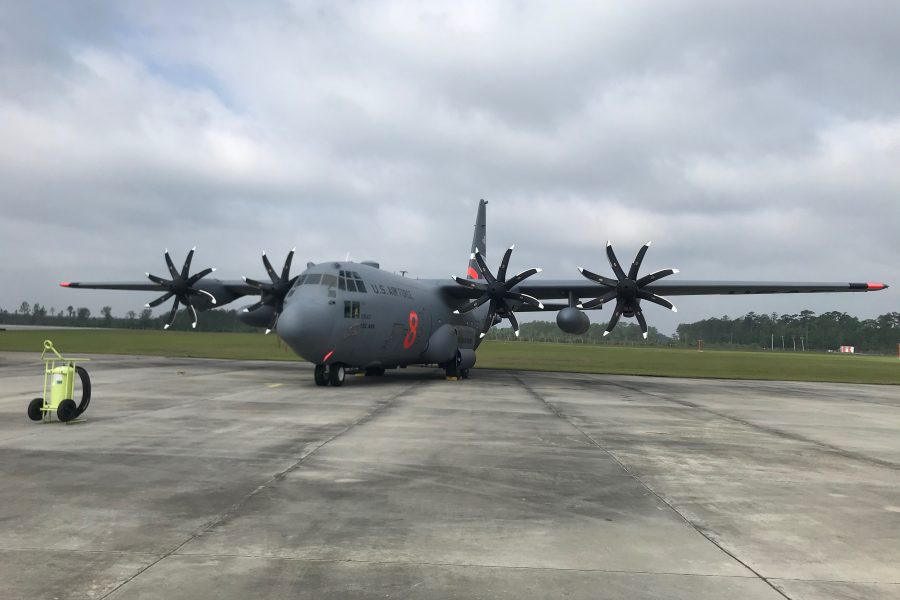The Air Force recently chose Collins Aerospace Systems, a Raytheon Technologies subsidiary, to provide NP2000 propeller systems for 30 Air National Guard and Air Force Reserve C-130H aircraft, the company announced.
The Air Force aims to equip about 160 of its C-130Hs with the cutting-edge propeller systems, and has ordered 55 systems to date, according to Collins.
“With its eight composite blades and digital Electronic Propeller Control System (EPCS), NP2000 offers a number of benefits compared to legacy systems, including: a 20 percent thrust increase during take-off, a 20db sound reduction in the cockpit, and a 50 percent reduction in maintenance man-hours,” a company press release stated.
During a recent interview with Air Force Magazine, Quinlan Lyte, the company’s senior director for propeller systems who oversees its NP2000 program, said the EPCS system takes 1970s-era mechanics “and makes it more electrical.” This, in turn, lets C-130H propellers synchrophase [or adjust in order to rotate at identical speeds] better and gives pilots more control over the aircraft’s speed mid-flight.
“It provides better comfort for the crew and better system responsiveness,” Lyte said.
NP2000’s man-hour reduction, on the other hand, stems from maintainers’ ability to switch out “individual blades on-wing,” an advantage its predecessor systems lacked, he said. The Air Force reserve component’s C-130Hs will also see “improved removal rates” with the new propeller systems, he said.
“In addition to the new order, Collins Aerospace earned the system’s C-130H Air Worthiness Certification from USAF and completed the first formal combined NP2000/EPCS installation on a USAF C-130H in April,” the release noted.
